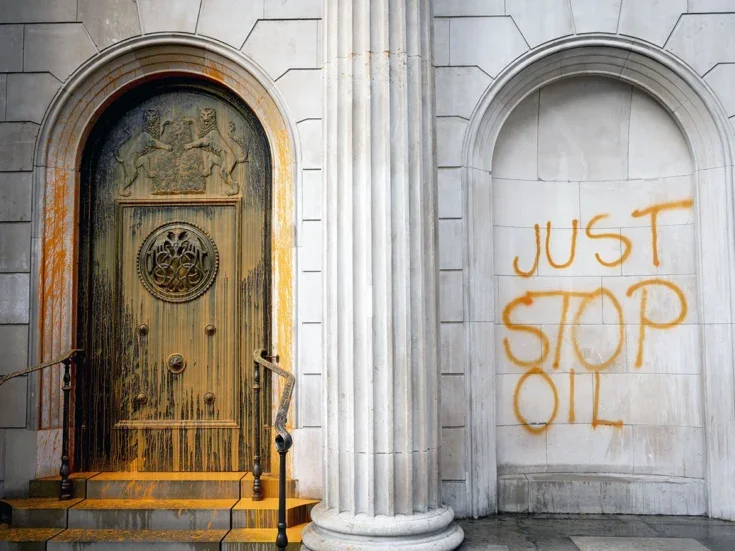As 2008 drew to its close, two men who had never met each other and of whom most of us had never heard were enjoying fabulous wealth beyond our wildest dreams. These two billionaires, early in 2009, have now lost their fortunes and their reputations.
As 2008 drew to its close, two men who had never met each other and of whom most of us had never heard were enjoying fabulous wealth beyond our wildest dreams. These two billionaires, early in 2009, have now lost their fortunes and their reputations, and are snowed under with January writs.
Worse still, they are likely to lose their freedom, and for a long time, too. So it’s a good time to ask which of their losses is the greatest — and surely it must be their freedom, that vital commodity which is taken for granted every day, until it is denied.
Consider the fate of these two ex-billionaires.
Ramalinga Raju, the nearest you can get to in Sanskrit to ‘Mr Big,’ the former CEO of NYSE-quoted Satyam Computer Services, had published false balance sheets for years, overstating profits and cash, until $1.1 billion of alleged cash was only $0.1 billion of actual wedge, a cool billion being pure imagination.
Ramalinga, architect of India’s Enron and of his own demise, now languishes in Hyderabad’s Central Prison, in a holding cell with 40 other felons sharing a single squat lavatory. His resignation letter spelt out his dilemma quite neatly: ‘I was riding the tiger for so long that I did not know how to get off without being eaten up.’
The other felon with the tiger problem was Bernie Madoff, pronounced ‘Made Off’, as in made off with $50 billion. His tiger was a voracious eater requiring 1 per cent per month for all the old money accepted that could only be paid by the new money coming in, and just like Ramalinga, he had to keep on going or simply get eaten.
On the morning of 12 January, our Bernie awoke in his luxury apartment at 133 East 64th St, electronically tagged as one is, waiting on Judge Ronald Ellis of the Manhattan District Court’s verdict on his breach of his bail conditions, as he had posted seven packages on Christmas Eve containing a million or two’s worth of bling to his nearest and dearest, as one does, as late Christmas presents.
But the judge decided to let him stay on in his apartment until 11 February, as he was co-operating with the investigators.
If Ramalinga could have telephoned Madoff to congratulate him and ask him how he did it, the latter might have said something like this:
‘Listen, you schmuck! You just manipulated the figures in the balance sheet, you wimp! You didn’t actually take anything for yourself! Here, they would have thrown you in jail for not stealing anything!
‘In New York you’ve gotta actually steal billions of real money and become a celebrity for fifteen minutes if you want to get the judge’s attention and have any real chance of getting off, with the help of the usual plea-bargain, lawyer crap shoot-out!’
All of which begs the real question: what is wealth? The material answer is largely uninteresting — yes, you can buy the bigger Bentley, a dozen Anderson & Sheppard suits or the latest Gulfstream — but this is too conventional.
The freedom wealth gives you is distinct from the essential liberty we all enjoy (until we rip off our clients): it ought to be the freedom to pursue the paths of life that you wish.
Necessarily some of this freedom has to be given up in the process of procuring such wealth, heredity notwithstanding, but the opportunities it provides are key. The opportunity to go where you like and see what the world has to offer. The opportunity to learn about what fascinates you. The opportunity to have your dreams and grasp them.
But that is the positive side. We may ask what wealth is and conclude that it brings more problems that it causes. For one, if you have wealth, you may be very reluctant to let it go, and the preservation of wealth — let alone its increase — is a heavy task. It cannot even sit safely in a bank account, since everything above £50,000 is not guaranteed.
Then you must trust your advisers, a difficult business in the PM era (post-Madoff) — how can you not be permanently paranoid? The government must be fended off, the ‘well-wishers’ combated, the many dangerous channels down which money can flow dammed. Wealth can mean spending more time worrying about money than those without it do.
There must be a happy medium, where you avoid a lascivious desire for high returns and a perpetual paranoia but follow the paths wealth creates for you. Wealth, after all, is supposed to enable.
Use your time during this long and gloomy recession to do all those things you have really always wanted to do, but thought you never had the time. Make good use of your time and freedom, so that you don’t squander your real wealth.






